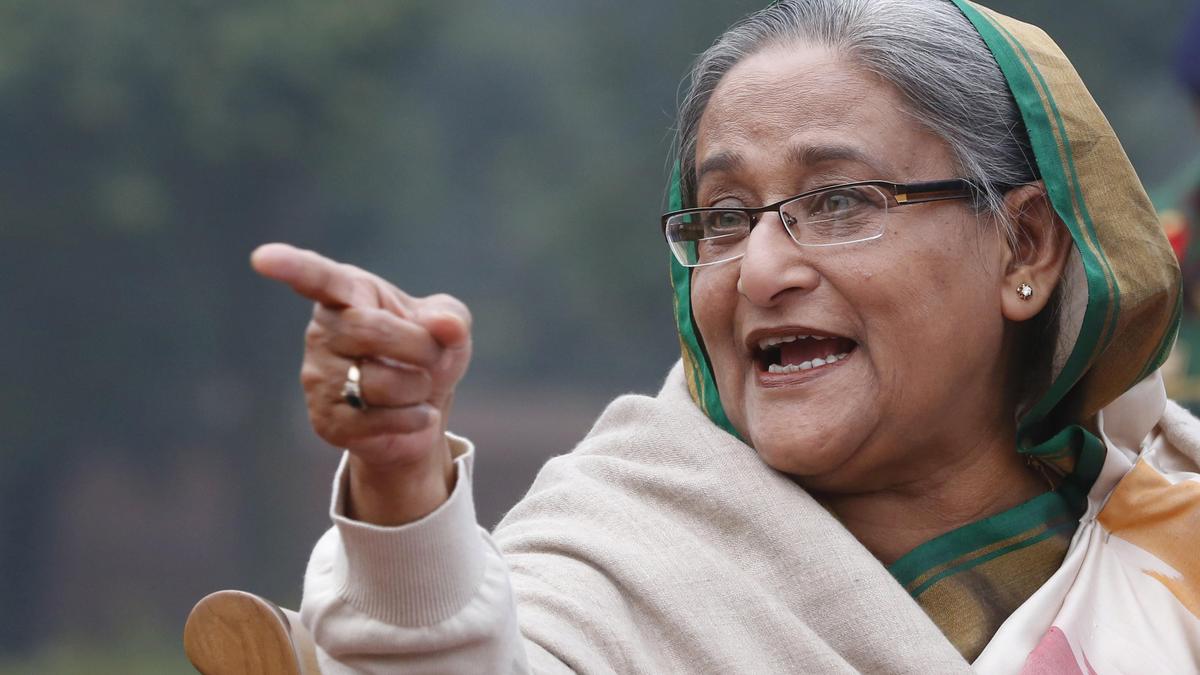Bangladesh’s International Crimes Tribunal (ICT) has launched an investigation against deposed Prime Minister Sheikh Hasina and nine others on charges of genocide and crimes against humanity during the recent student-led mass protests. This investigation, coupled with the interim government’s push for extradition, has brought renewed scrutiny to the events that transpired in Bangladesh, raising crucial questions about accountability, justice, and the political landscape in the aftermath of the protests.
Extradition of Sheikh Hasina: A New Chapter in Bangladesh’s Political Crisis
Following the unprecedented anti-government protests, Sheikh Hasina, facing intense pressure, resigned from her position and sought refuge in India. The interim government led by Nobel laureate Muhammad Yunus, which rose to power after the upheaval, has set its sights on bringing Hasina back to Bangladesh to face charges of mass killings and crimes against humanity committed during the student protests. This intention is evident in the statement made by Md Tajul Islam, the chief prosecutor of the ICT.
Implications of Extradition
The pursuit of extradition carries significant implications. Firstly, it signals the interim government’s commitment to hold those responsible for the violence accountable, establishing a precedent for justice in a nation where accountability has been a recurring issue.
Secondly, the extradition effort represents a decisive step toward addressing the deep divisions that fueled the recent protests. By pursuing charges against the former Prime Minister, the government aims to demonstrate its commitment to justice and reconciliation, paving the way for national healing.
Thirdly, the extradition process has the potential to reshape Bangladesh’s political landscape, impacting the power dynamics and the course of future political discourse. It remains to be seen whether Hasina’s extradition will pave the way for stability and inclusivity or fuel further unrest and instability.
The International Crimes Tribunal and Its Challenges
The ICT, established to prosecute those accused of crimes against humanity during the 1971 Liberation War, finds itself at the center of the current political crisis. With new cases filed against Hasina and others, the ICT faces a monumental task.
Challenges of Reconstitution
The ICT faces the critical challenge of reconstitution following the resignation of judges and the prosecution team. The interim government must quickly appoint qualified and impartial individuals to ensure the integrity and legitimacy of the Tribunal.
Handling Evidence and Investigations
The ICT investigation team faces the challenge of gathering, examining, and presenting compelling evidence to support the charges against the accused. With widespread allegations of mass killings, the process of collecting evidence from across the country will be complex and resource-intensive.
The Wider Context: Political Unrest and Human Rights Violations
The current situation in Bangladesh underscores the need for a nuanced understanding of the underlying political and social context. The student-led protests that led to Hasina’s downfall reflect simmering grievances related to corruption, inequality, and the erosion of democratic freedoms. The protests highlight the deep-seated dissatisfaction with the ruling elite and the growing demands for accountability.
The Human Rights Situation
The reported deaths and injuries during the protests raise serious concerns about human rights violations. Independent investigations and monitoring are critical to assess the situation, establish accountability for any abuses committed by state actors or protestors, and ensure the protection of fundamental rights.
International Implications
The unfolding events in Bangladesh have broader regional and international implications. International organizations, such as the United Nations, and neighboring nations need to remain engaged to promote peace, stability, and uphold the principles of human rights and democracy in Bangladesh.
Takeaways
The extradition of Sheikh Hasina and the ongoing investigation by the ICT represent a pivotal moment in Bangladesh’s history. The events offer a unique opportunity for Bangladesh to address systemic issues and foster a political landscape built on the pillars of accountability, transparency, and justice.
Key Takeaways:
- The pursuit of extradition for Sheikh Hasina signals the interim government’s commitment to accountability.
- The International Crimes Tribunal faces crucial challenges in reconstitution and ensuring a fair and transparent trial.
- The political unrest underscores the need for a comprehensive approach that addresses underlying social and political issues.
- The human rights situation requires immediate attention and calls for a thorough investigation into reported violations.
- The international community must play an active role in promoting dialogue, stability, and upholding human rights in Bangladesh.




